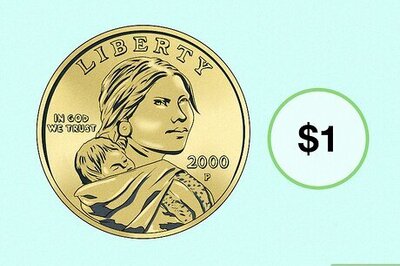
views
New Delhi: India's inflation rate may be revised to 10 per cent from the latest estimate of 7.82 per cent as data for prices of different commodities is updated, London-based publication The Economist has said.
"Delays in data collection in India can mean big revisions to inflation... The latest wholesale price rate inflation rate might therefore be pushed up to 9-10 per cent," noted The Economist in its cover story on global inflation.
India faces the challenge of high inflation in the coming months, especially due to rising international crude oil and food prices.
"Prices are also rising partly because loose monetary conditions in emerging economies have boosted domestic demand," the prestigious journal said.
India revised inflation figures for the week ended March 15 to 8.02 per cent from the earlier estimate of 6.68 per cent.
Referring to ban on futures trading in agricultural commodities, it said, "In the short run such measures may help cap inflation and avoid social unrest, but in the long run they do more harm than good."
Preventing rising prices reduces the incentive for farmers to increase supply and for consumers to curb demand, thus prolonging the very imbalance that has stoked prices.
It further said if measured correctly, five of the 10 biggest emerging economies could have inflation rates of 10 per cent or more by mid-summer.
"Two-thirds of the world's population may then be struggling with double-digit inflation."
The Economist pointed out that China's consumer-price inflation is at a 12-year high of 8.5 per cent, up from 3 per cent a year ago.
Russia's has leapt from 8 per cent to over 14 per cent, while most Gulf oil producers have double-digit inflation rates.
Although food inflation is likely to slow later this year, recent jump in prices has been caused mainly by surging oil and food prices, it said.
In India the food accounts for about 60 per cent of the total consumer price basket, unlike only 15 per cent in the G7 countries, so food prices weigh more heavily on inflation expectations and hence wage demands than in the rich world.
Tighter monetary policy would help anchor expectations and stop higher commodity prices, it added.



















Comments
0 comment